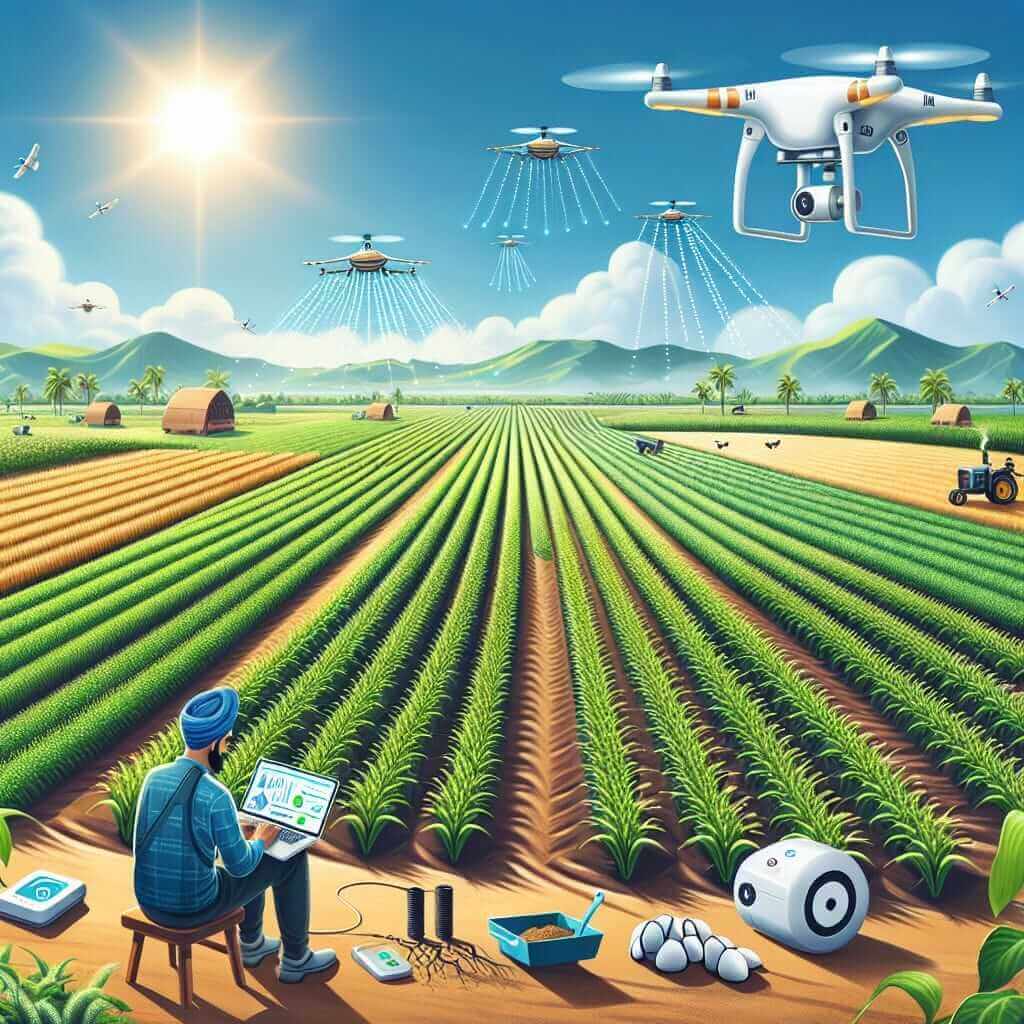The Reading section of the IELTS exam often features passages on contemporary issues, including the utilization of AI in various fields. With its rapid advancement, AI’s application in optimizing resource management has become a popular topic. By analyzing relevant historical data, we can infer that such subjects might appear frequently in future tests. In this guide, we will provide a full IELTS Reading practice text, based on the keyword “How is AI being used to optimize resource management?”, and prepare you comprehensively for similar passages in the actual exam.
IELT Practice Text: AI in Resource Management
Passage: How AI is Revolutionizing Resource Management
Artificial Intelligence (AI) is transforming resource management in various industries, from agriculture to energy. This transformation is characterized by the application of AI algorithms and machine learning techniques to enhance efficiency, reduce waste, and improve sustainability.
In agriculture, AI-powered systems are being used to monitor crop health. These systems deploy sensors and drones to gather data about soil conditions, moisture levels, and plant health. Machine learning algorithms then analyze this data to predict crop diseases and suggest optimal times for irrigation and fertilizer application. Consequently, farmers can maximize yield while minimizing the use of water and chemicals, promoting sustainable farming practices.

In the energy sector, AI is optimizing the distribution and consumption of electricity. Smart grids integrate AI to forecast energy demand and manage supply in real-time. By analyzing historical consumption patterns and weather forecasts, AI can predict peak usage times and adjust energy distribution accordingly. This ensures that excess energy is stored or redistributed, reducing waste and enhancing reliability.
Moreover, AI is pivotal in waste management. AI-based systems can sort recyclable materials with higher accuracy than human workers. By using computer vision technology, these systems identify and separate various types of waste, facilitating more efficient recycling processes and reducing landfill use.
Questions
Multiple Choice
-
What is one key benefit of using AI in agriculture, as mentioned in the passage?
- A) Reducing the need for manual labor.
- B) Enhancing crop health monitoring.
- C) Increasing the amount of chemical fertilizer used.
- D) Expanding farming land.
-
How does AI contribute to energy management?
- A) By creating new energy sources.
- B) By installing solar panels.
- C) By predicting energy demand accurately.
- D) By manually upgrading power lines.
True/False/Not Given
- AI systems in agriculture can predict crop diseases. (True/False/Not Given)
- AI has no application in managing electricity consumption. (True/False/Not Given)
- Waste management using AI is less accurate than manual methods. (True/False/Not Given)
Summary Completion
6-7. Fill in the blanks with NO MORE THAN TWO WORDS from the passage.
AI optimizes the management of resources by using machine learning algorithms and to collect data. In energy management, AI aids in forecasting demand and adjusting energy .
Answer Keys and Explanations
-
B) Enhancing crop health monitoring.
- Explanation: The passage indicates that AI-powered systems in agriculture are being used to monitor crop health.
-
C) By predicting energy demand accurately.
- Explanation: The passage explains that AI forecasts energy demand and adjusts supply in real-time.
-
True
- Explanation: The passage clearly mentions that AI systems can predict crop diseases.
-
False
- Explanation: Contrarily, the passage highlights AI’s role in managing electricity consumption.
-
False
- Explanation: According to the passage, AI-based systems sort recyclable materials more accurately than human workers.
-
sensors and drones
- Explanation: The passage states that sensors and drones gather data on soil conditions, moisture levels, and plant health.
-
distribution accordingly
- Explanation: AI can predict peak usage times and manage energy distribution accordingly.
Common Mistakes
- Misinterpreting Key Details: Ensure you focus on the specific role AI plays according to the passage.
- Over-generalization: Avoid making broad assumptions not supported by the text.
- Neglecting Context: Always consider the surrounding context to understand the complete picture.
Vocabulary
- Algorithm (noun): /ˈæl.ɡə.rɪ.ðəm/ – a process or set of rules to be followed in calculations or other problem-solving operations.
- Sustainability (noun): /səˌsteɪn.əˈbɪl.ə.ti/ – the ability to be maintained at a certain rate or level.
- Forecast (verb): /ˈfɔː.kɑːst/ – predict or estimate a future event or trend.
Grammar Focus
Relative Clauses:
- Example: “AI systems, which use machine learning algorithms, are transforming industries.”
- Structure: [relative pronoun] + [verb] + [subject (optional)]
Tips for High IELTS Reading Scores
- Practice Regularly: Consistency helps in improving speed and accuracy.
- Expand Vocabulary: Read extensively to familiarize yourself with a wide range of scientific and technical terms.
- Time Management: Practice under timed conditions to enhance time management skills during the exam.
- Understand Question Types: Familiarize yourself with various question formats and practice accordingly.
- Critical Reading: Develop the ability to analyze and infer information from passages.
For more on how AI is used in different contexts, check these related articles: